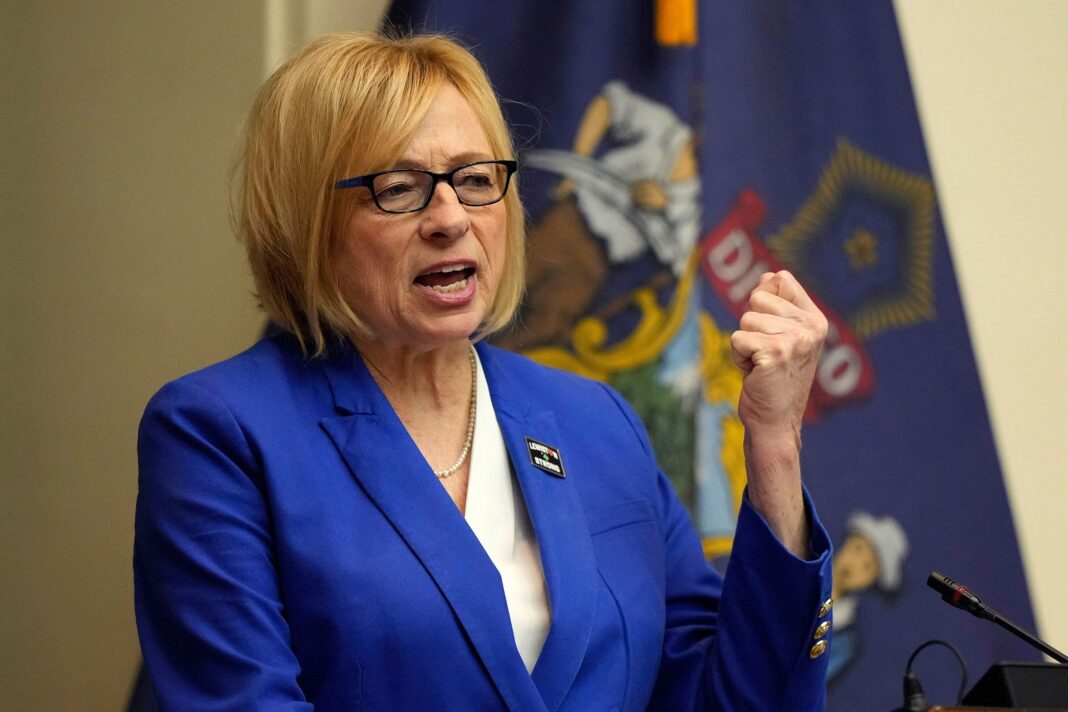Janet Mills: A Major Player in Maine’s Senate Race
Background on Janet Mills
Maine Governor Janet Mills is gearing up to make a significant political move. As a seasoned politician, Mills has served two terms as governor and was previously the state’s attorney general. If she formally announces her candidacy for the U.S. Senate, she will be stepping into a competitive race to unseat long-standing Republican Senator Susan Collins. Given her extensive experience, Mills represents a high-profile entry point for Democrats in the battle for a Senate seat that could influence the party’s chances to regain control.
The Timing of the Announcement
Mills is expected to announce her candidacy imminently, though the specific timing may be affected by ongoing government shutdowns. While these events can impact many political timelines, Mills’ announcement will mark a key moment in the lead-up to the Senate race, energizing her supporters and crafting a clearer picture of the contest ahead.
The Competitive Landscape
However, Mills is not entering a vacuum. The Democratic primary is shaping up to be crowded, featuring several political newcomers vying for attention. Candidates like oysterman Graham Platner, brewery owner Dan Kleban, and former U.S. House staffer Jordan Wood have already committed to their campaigns. Their relative lack of political experience contrasts sharply with Mills’ well-established track record, prompting a debate among voters about the value of experience versus a desire for generational change.
The Challenge of Incumbency
Senator Susan Collins has been an enduring figure in Maine politics since her election in 1996. As the only Republican senator facing re-election in a state that recently supported then-Vice President Kamala Harris, Collins has solidified her position over the years. In the previous election cycle, Democrats poured resources into attempts to unseat Collins, particularly in the wake of her controversial support for Supreme Court Justice Brett Kavanaugh. Despite these efforts, Collins managed to secure re-election by a substantial margin, a clear sign of her ongoing popularity in the state.
Voter Sentiment and Affordability Issues
One of the key selling points for candidates like Platner, Kleban, and Wood is their deep understanding of local issues, particularly concerning the cost of living and affordability in Maine. They argue that their grassroots experiences offer them unique insights into the challenges facing everyday voters, setting them apart from Collins, who, at 72, may be seen as more out of touch with current economic realities.
Democratic Aspirations for the Senate
For Democrats, winning the Senate seat in Maine could be pivotal in their efforts to regain a majority or narrow the Republican lead. With Collins’ history of bipartisan appeal, especially in a state that swings between red and blue, the stakes are high. Democrats recognize that defeating Collins will be a formidable challenge, necessitating a well-coordinated and strategic campaign that unites voters behind a common goal.
A History of Resilient Opponents
Democrats have previously rallied around strong candidates, such as former Maine House Speaker Sara Gideon, who, while unsuccessful in the last election, managed to galvanize support against Collins. This history indicates that any strategy to unseat Collins will require not only a strong candidate but also a unified Democratic front, capable of mobilizing significant resources and support.
Broader Implications for Democrats
The context of Maine’s Senate race fits into a larger narrative of Democratic recruitment across the country, with other high-profile candidates emerging in key states like North Carolina and Ohio. In shaping their campaign strategies, Democrats must consider how to leverage both local issues and broader national themes to strengthen their position as they head into the critical election year.
Through her potential candidacy, Janet Mills embodies a strategic move for Democrats aiming to reclaim legislative power in the Senate, making the upcoming months not only crucial for Maine but also significant for the national political landscape as the 2024 elections approach.



